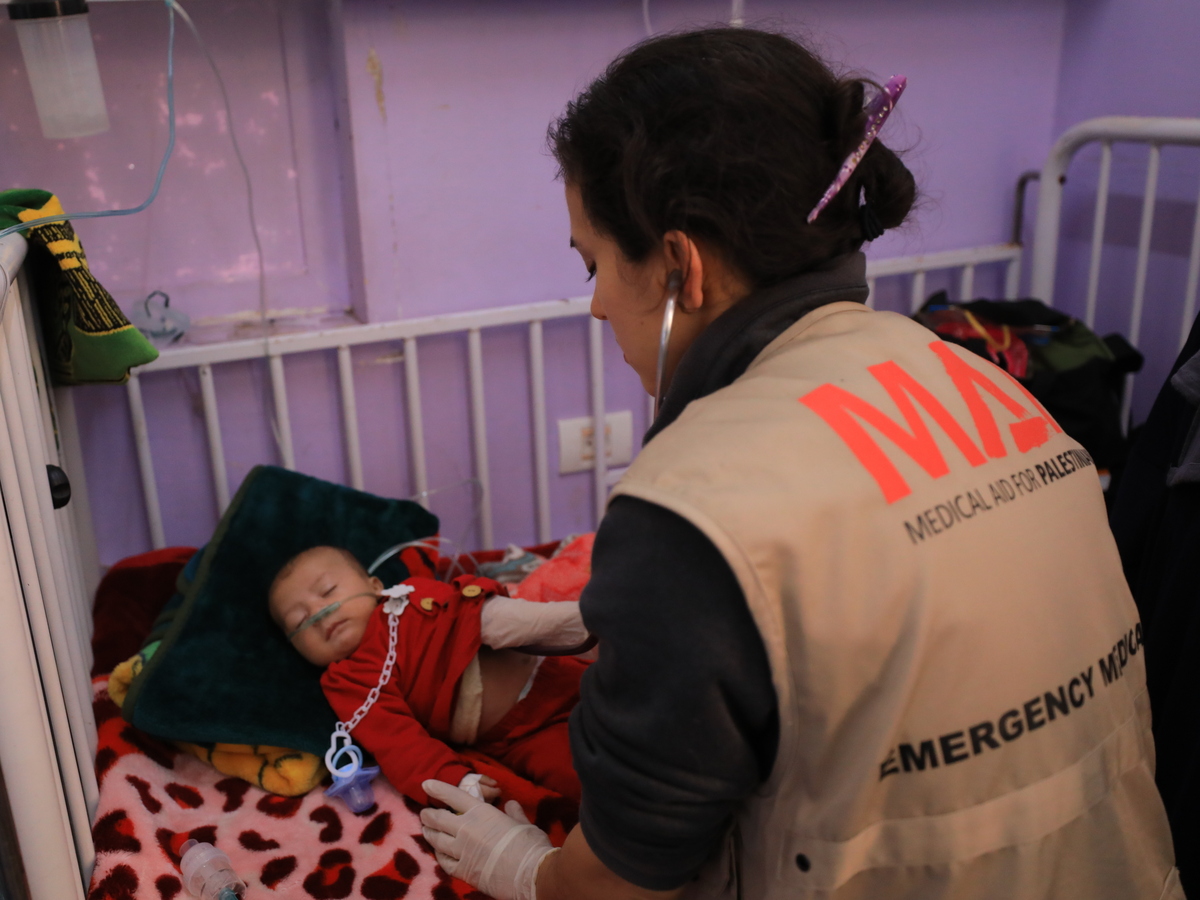
Dr. Seema Jilani, Senior Emergency Health Technical Advisor and Pediatrician, treats children at al-Aqsa Hospital in Gaza. Photo by Tarneem Hammad/MAP /International Rescue Committee hide caption

Dr. Seema Jilani, Senior Emergency Health Technical Advisor and Pediatrician, treats children at al-Aqsa Hospital in Gaza.
Photo by Tarneem Hammad/MAP /International Rescue CommitteeIt's been nearly a hundred days since Hamas' deadly attack on Israel, which prompted Israel's ongoing bombardment of Gaza. Israel says it aims to destroy Hamas.
By Palestinian officials' tally - more than 23,000 Palestinians have been killed in Gaza and about one in every 40 people there have been wounded in just three months.
Israel's military is now pushing deeper into central Gaza. The World Health Organization says the most important hospital there is al-Aqsa Hospital.
American pediatrician Seema Jilani, spent two weeks working at the al-Aqsa Hospital there. She recorded voice memos about what she saw and talks to NPR's Ari Shapiro about the experience.
Email us at
This episode was produced by Erika Ryan. Daniel Estrin and Aya Batrawy contributed reporting. It was edited by Larry Kaplow and Courtney Dorning. Our executive producer is Sami Yenigun.

 Live Radio
Live Radio